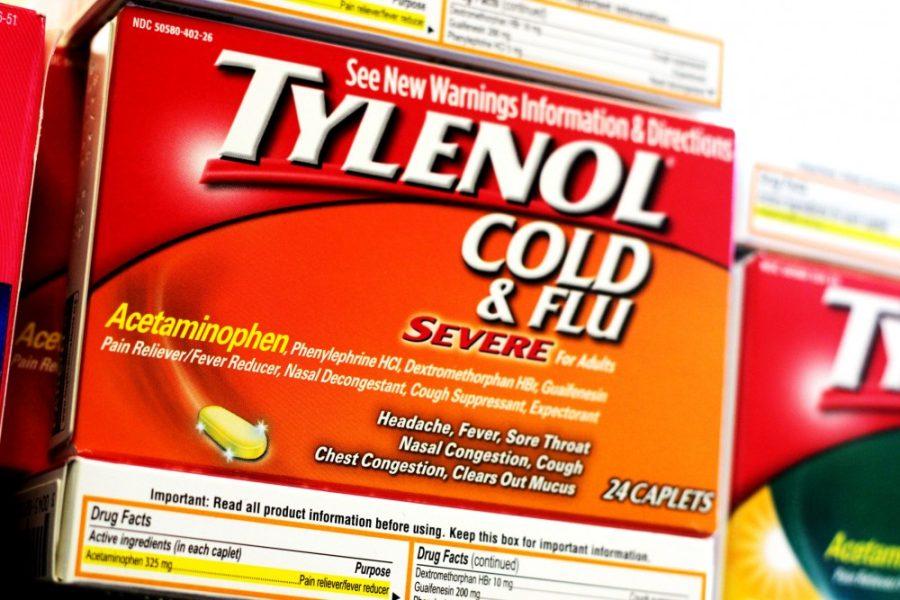Data compiled by the Arizona Poison and Drug Information Center shows that Tylenol overdoses kill more people than car crashes, and the center is looking to do something about it.
The APDIC at the University Of Arizona College of Pharmacy is trying to educate UA students and the general public about the dangers associated with taking too much acetaminophen.
According to Dr. Keith Boesen, pharmacist and director of the APDIC, acetaminophen is an over-the-counter drug used primarily to reduce fever and treat pain. This popular drug is also most commonly known as Tylenol or APAP.
“The age range of UA students is one of the prime ages where people are unintentionally overdosing on over-the-counter drugs,” said Liz Barta, outreach coordinator for APDIC. “Really it’s young and middle-aged adults that are dying at the highest rate from unintentional medical overdose.”
A 2012 Centers for Disease Control and Prevention report showed that 78 percent of deaths caused by drug overdoses in the U.S. in 2010 were unintentional.
“Many people get harmed, but weren’t intending on harming themselves,” said Dr. Mazda Shirazi, medical director for APDIC. “They were on medications and did not realize that mixing or taking something else would harm them.”
Barta adds that people easily get bottles of medications mixed up, often from failing to read the label.
More than 600 over-the-counter drugs contain acetaminophen, Boesen said. Prescription narcotics such as Vicodin and Percocet also contain high doses of acetaminophen.
“You can throw a dart in a pharmacy and you’ll probably hit acetaminophen,” Boesen said. “It’s a very common pain medication found in just about anything.”
Tylenol is the most popular acetaminophen medication, but it is also found in NyQuil, Midol, Excedrin and others, Barta said.
Although there is a recommended maximum dosage for most over-the-counter and prescription drugs, according to Shirazi, people taking medicine often use the therapeutic index to measure the dosage themselves. The index shows how much medication a person needs to take in order its effects.
“Therapeutic doses could potentially be poisonous,” Shirazi said. “Just because some drugs are over-the-counter does not mean that they can’t have severe side effects.”
While these drugs have their own side effects, one of the most common signs of overdosing is abdominal pain.
The maximum daily dosage of acetaminophen that an adult should consume each day is 4,000 milligrams, Barta said.
“That is five 800 mg tablets, but a lot of Americans say, ‘One’s good, two’s better and three is just fine,’” Barta said.
Overconsumption of acetaminophen is the leading cause of liver failure in the U.S., according to Boesen. When you take acetaminophen appropriately, it is safe; however, taking too much in a short period of time can ultimately result in liver damage and failure.
“People don’t realize how common it is,” Barta said. “It’s in everything; you might know about it, but not know it’s in 600 over-the-counter medicines.”









